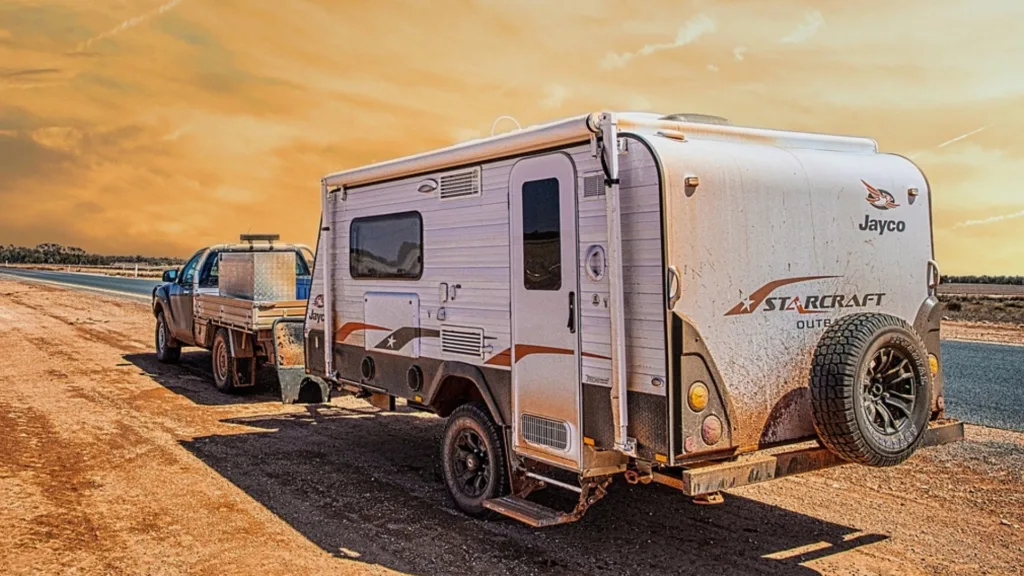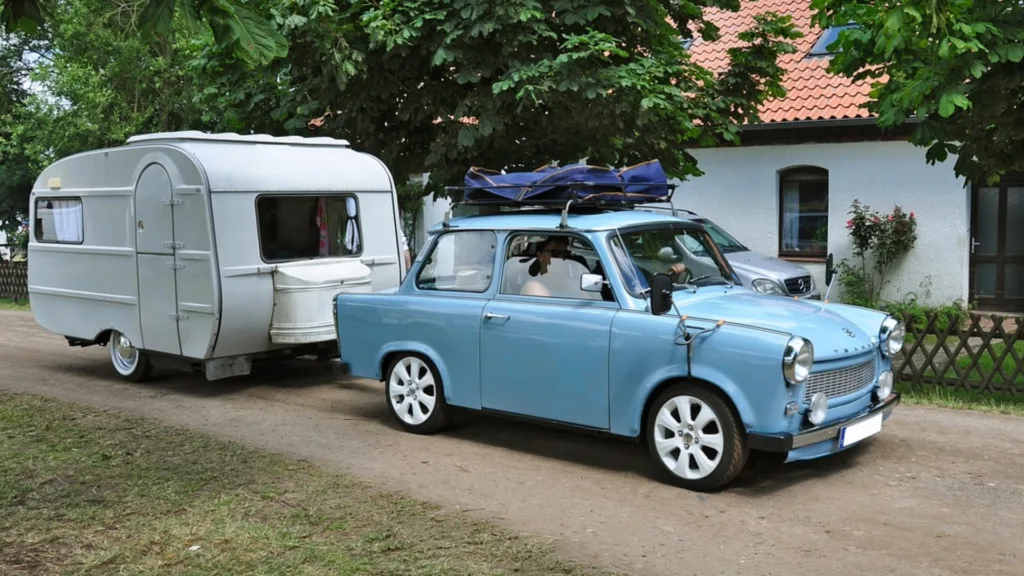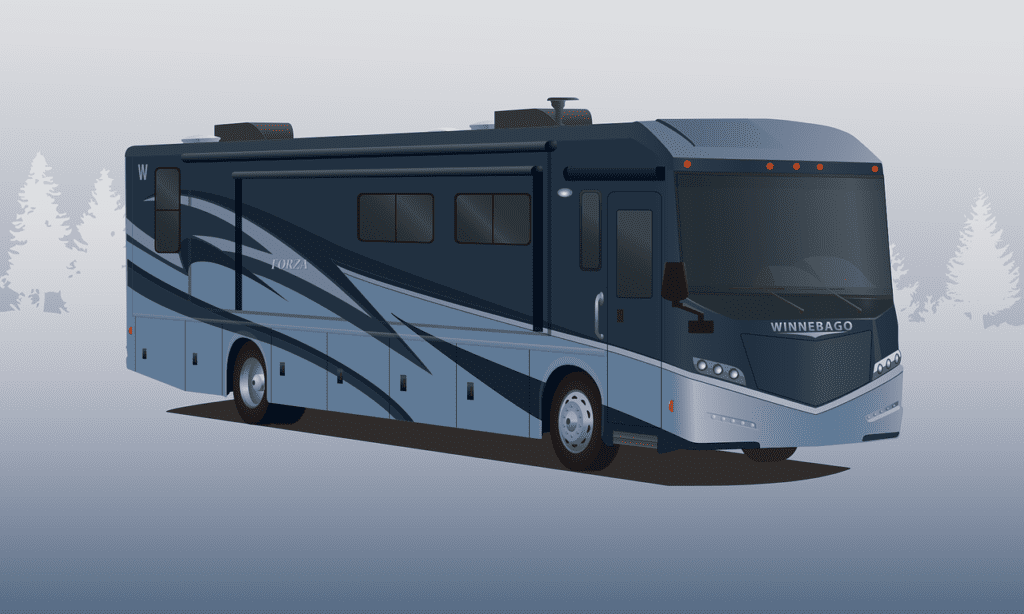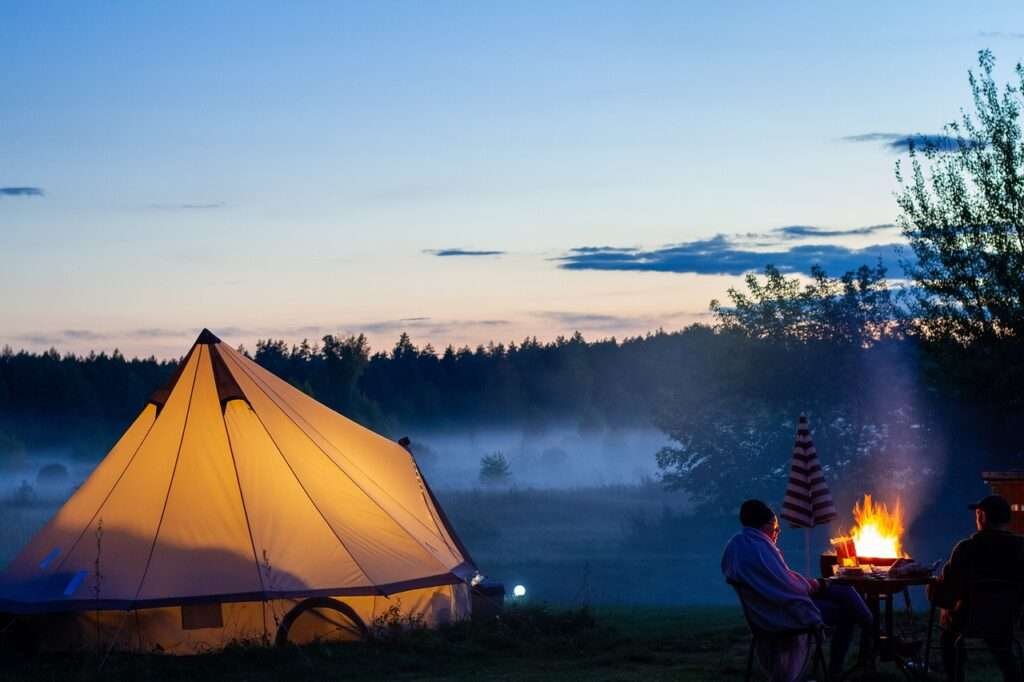
Consider a Bus to Mobile Home Conversion.
In recent years, bus-to-mobile-home conversions have gained significant popularity among retirees. This fascinating trend involves transforming old buses (of various types) into comfortable and stylish mobile homes.
In this article, we will explore the benefits of this lifestyle, including the freedom it provides you. We’ll also take a brief look at what is required with this conversion.
Nomadic Retirement Lifestyle.
We wait a long time to be able to retire from the rat race. Everybody will find happiness in retirement via their own individual ways. I understand that here will be those of us that will be restricted during retirement for various reasons; sometimes these reasons are health related.
However, for those that might feel that the last thing they want out of their retirement is be stuck in the same old place and do little more than be a slave to their house because, then a bus-to-mobile-home conversion might just be your passage to freedom.
A nomad refers to those of us who have no fixed residence and move from place to place and pretty much do whatever we want, where we want and just don’t need a reason for it. Nomadic lifestyle retirees were usually known for seasonally pulling caravans around their respective countries. They would still have their family home back at their point of origin and for my mind, these were only partially nomadic.
If you sell your family home and completing your bus-to-mobile-home conversion and then head out into great unknown without a care in the world, then for my mind, that’s being truly Nomadic.
It was a bus but now it is my home.
By transforming a bus into a mobile home, retirees can enjoy the freedom to travel wherever their hearts desire. The added bonus is that there’s really no need to sacrifice the comforts of home in doing so. These conversions offer a unique opportunity to create a personalized living space that suits your needs and preferences.
From the kitchen to the bedroom, retirees can customize every inch of their mobile home to reflect their own sense of style and functionality. One of the key advantages of converting a bus into a mobile home is the ability to include most (if not all) of the essential amenities of your former home.
The kitchen and eating areas, often considered the heart of a home, can be equipped with modern appliances, ample storage space, and a comfortable dining arrangement.
On board your mobile home, you can still prepare your favourite meals. You’ll be able to keep your meal routines like Taco Tuesdays on the road and ensure that you maintain a healthy and enjoyable Nomadic lifestyle.
The bathroom is another essential component of a comfortable mobile home. Conversions can include a fully functional bathroom with a shower, toilet, and sink. Retirees can enjoy the convenience of having their own private bathroom, eliminating the need to rely on public facilities during their travels.
Water and Waste Management
Consider purchasing a water storage system, water pump, and water filtration system to ensure a reliable supply of clean water.
You don’t have to worry about taking care of Number 2 either. There are specialist mobile home toilet options available to you that are practical and convenient such as:
Cassette toilets: These are self-contained units that can be easily removed for emptying and cleaning. They are popular in small RVs and campervans and should work well with a bus to mobile home conversion.
Composting toilets: These are eco-friendly toilets that use little or no water and turn waste into compost. They are ideal for those who want an eco-friendly mobile home toilet option. You could contact VanHomes for an eco friendly self-composting or incinerating toilets for mobile homes. Their toilets are designed to be easy to install and use.
Portable toilets: These are lightweight and easy to move around. They are ideal for those who want a toilet that can be easily transported and stored.
Incinerator toilets: These can be fairly easily installed in mobile homes and are a popular choice. These toilets use electricity to burn waste into ash, which can be disposed of in a bin. They require no plumbing, and are clean and odourless. You can contact Vanhomes on 1300-558-512 or visit their website via this link. You could also contact Scandinavian Eco Solutions in Victoria via 0417-143-005 or visit their website via this link.
When choosing a toilet for your bus to mobile home conversion, consider factors such as space, budget, and personal preferences.
Purchase and Install a Solar Power System.
Installing a solar power system can provide you with a sustainable and independent source of energy while travelling. This system typically includes solar panels, batteries, an inverter, and a charge controller.
There are several companies in Australia that specialize in installing solar panels/systems on mobile homes, here’s a few options:
1. Solar Power Australia:
2. SolarBright:
3. Solaray Energy:
4. Soltek Energy:
5. Greenforce Energy:
These companies all offer solar power system options for mobile homes and provide information on what size system would work best for your needs. Naturally, do a bit of research before deciding up which company to use for installing the solar power system onto your mobile home, consider factors such as experience, reputation, and cost. Make sure they are fully licensed and insured to perform the work.
Backup power via a diesel generator.
There are several brands of small diesel generators that are suitable for mobile homes. Here are some of the most popular ones that I could think of:
1. Genesys: They offer a variety of diesel generators. Their generators have a reputation for dependability, durability, and fuel efficiency.
2. Kubota: A well known brand for diesel generators is Kubota. They are known for being quiet, fuel efficient, and emitting low levels of pollution.
3. Yamaha: With a great selection of portable diesel generators that are ideal for mobile homes, your local Yamaha dealer might have a good option for you. Their generators are well-known for their dependability, durability, and simplicity of operation.
For your bus to mobile home conversion, take into account variables like power output, fuel efficiency, and noise level when selecting a diesel generator. Size will more than likely be an issue, so you will need to have completed work on the cavity underneath where you will store the diesel generator first.
Dedicated Diesel Tank for your Diesel Generator.
I think the best bet here is to contact a company that specialises in mobile home conversions or RV repairs for assistance with installing a dedicated diesel tank underneath to supply your generator. Here are four companies that come to mind in Australia that offer these specialist services:
1. VanGo Customs.
2. The Motorhome Conversion Company.
3. RV Service Centre.
4. Caravan Repairs and Service.
More design consideration for your bus to mobile home conversion.
A cozy and well-designed bedroom is crucial for a good night’s sleep, and a converted bus can provide just that. With typically plenty of space to set aside for what will be your bedroom, you will be able to select from a range of bed sizes and configurations.
Ample storage space will be very important to you. You will want to include your much loved personal belongings and keep you Bus to mobile home conversion tidy and free from clutter. With plenty of space available, you should be able to work out some good storage design options.
The living room area is where you will want to relax at the end of each day, entertain guests, or simply enjoy a quiet evening reading or watching TV.
Comfortable seating and entertainment system options can be integrated into the design, creating a cozy and inviting atmosphere.
Especially if you’ve been driving all day, having this space as a retreat from the world will have you unwinding in no time.
Add some luxurious features.
A few luxurious touches can transform a mobile home into a true haven on wheels. Allow yourself a few indulgences and enjoy ultimate levels of comfort and relaxation.
Beyond the practical aspects, converting a bus into a mobile home offers you a sense of adventure and independence. These conversions give you the freedom to choose their own path, explore new destinations, and connect with like-minded individuals along the way.
The open road becomes your blank canvas, and the converted bus becomes your home on wheels.
Types of Buses you can use for your Conversion
When it comes to bus to mobile home conversions, there are several types of buses that you could select from such as:
1. School Buses: These are a popular choice for conversions due to their affordability, durability, and ample space. These buses typically feature a flat front, high ceilings, and large windows, providing an excellent blank canvas for customisation.
2. Transit Buses: These can also be converted into mobile homes. They offer more interior space compared to school buses and may come with additional features such as under-floor storage compartments.
3. Coach Buses: Coaches are often very large as in their original configuration that would offer luxurious amenities such as reclining seats, overhead storage, onboard lavatories and large storage areas underneath. This can make them a great choice for those wanting more space to work with.
4. Double-Decker Buses: For my mind, using a double decker bus as the platform for a mobile home conversion would be the premium choice. If you’re looking for a unique and spacious conversion project, double-decker buses provide an abundance of space. This will allow for creative floor plan designs and the potential to include multiple sleeping areas.
Average Costs Involved with a Bus to Mobile Home Conversion.
Various factors, including the type of bus, desired amenities, and degree of customisation, can affect the cost of converting a bus into a mobile home. Nevertheless, the average costs involved are broken down as follows in general:
1. Bus Purchase: The initial cost of acquiring a bus for conversion can range anywhere from $8,000 to $50,000 or more, depending on the type, age, and condition of the bus.
2. Get the Engine checked out: The Detroit Diesel Series 60 is a popular diesel engine installed in many buses. It was available in 12.7 and 14-litre versions producing between 340 and 600 horsepower. The Cummins B 6.7 is another popular diesel engine used in many school buses.
3. Conversion Materials: The cost of materials for the conversion, including insulation, flooring, plumbing, electrical wiring, and appliances, can range from $6,000 to $25,000, depending on the extent of the renovation and the desired quality of the finishes.
4. Professional Services: If you prefer to hire professionals for certain aspects of the conversion, such as electrical, carpentry or plumbing work, it’s important to factor in those costs. Professional services can range from $2,000 to $10,000, depending on the complexity of your particular bus to mobile home conversion project.
Conclusion.
For retirees who want to live life independently, converting a bus into a chic, functional, and cosy mobile home is a great choice. These conversions offer the chance to design a unique living area with all the conveniences of a conventional house.
Retirees who have the freedom to travel and the conveniences of home can set out on a life-changing adventure, creating memories and savouring the time spent travelling.







